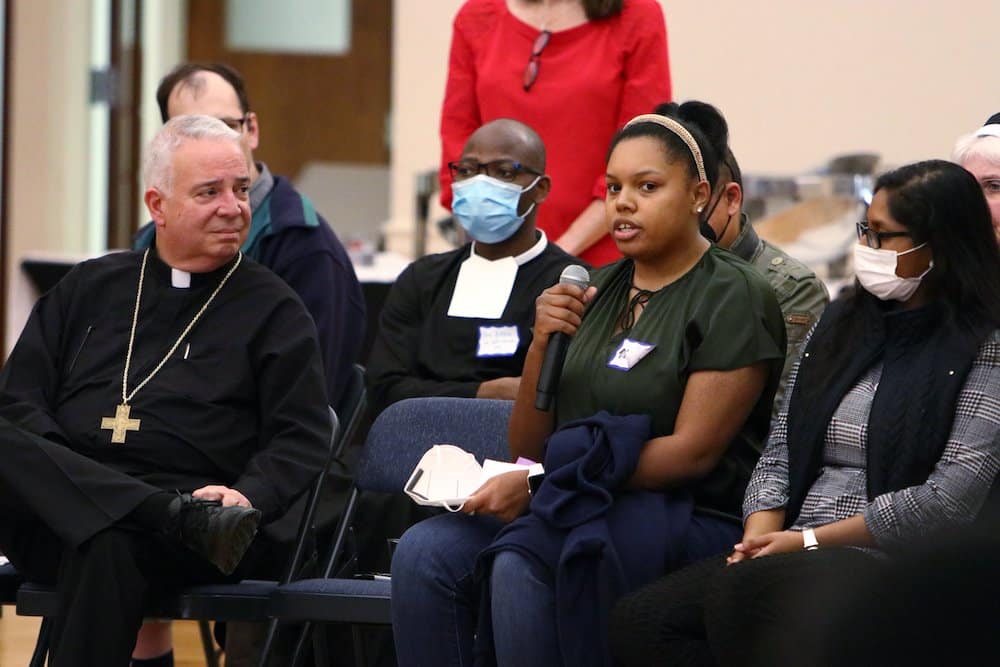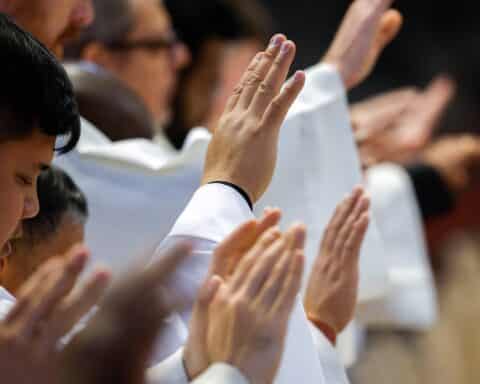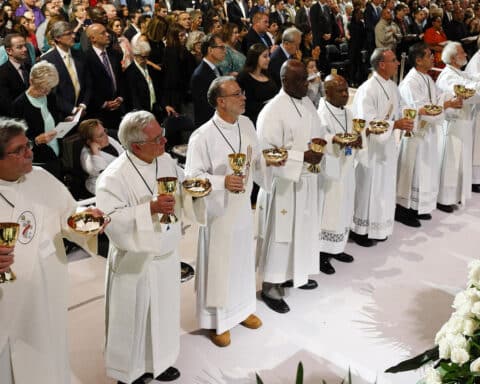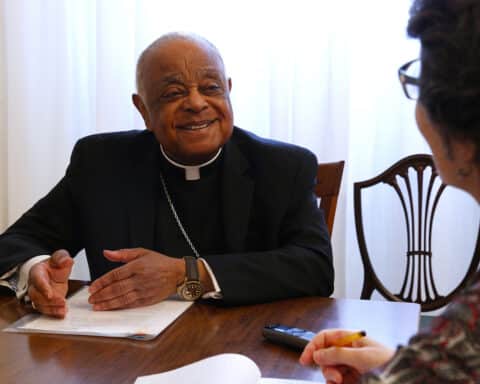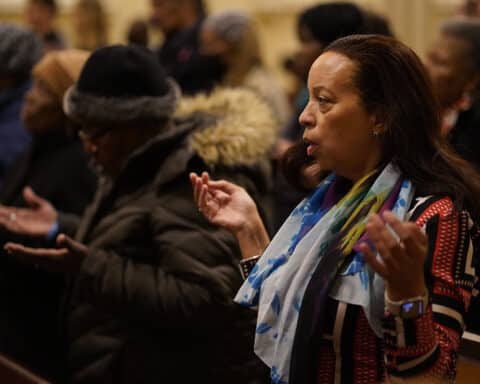(OSV News) — The final document for the North American phase of the 2021-2024 Synod on Synodality was released April 12, capturing a process of dialogue and discernment that two participants described as “messy,” “joyful” and unifying — like the synod itself.
“It’s amazing what comes about when … you invoke the Holy Spirit in the conversation,” Julia McStravog, a theologian and co-coordinator of the North American team for the synod’s continental phase, told OSV News.
“The synodal approach provoked a genuine appreciation and joyfulness on the part of the people of God to be able to engage in conversation, even if they were talking about difficult issues,” team co-coordinator Richard Coll told OSV News. Coll also serves as executive director of the U.S. Conference of Catholic Bishops’ Department of Justice, Peace and Human Development.
Led by Catholic bishops from Canada and the United States, McStravog, Coll and their fellow team members have now synthesized the results of synod listening sessions throughout the two countries, producing a 36-page final document available for download at usccb.org/synod. (According to the USCCB, the Catholic Church in Mexico is participating in the global synod with the Latin American Episcopal Council, or CELAM, given its long partnership with that conference.)
The North American synod team — consisting of eight bishops, three laywomen, two priests, two laymen and two women religious — spent time in prayer, silence and discussion to distill responses for inclusion in the text, which forms a response to the Document for the Continental Stage issued by the Holy See’s General Secretariat for the Synod of Bishops in October 2022.
The final document for the continental stage from North America, along with the contributions of the six other continental assemblies, will form the basis of the Instrumentum Laboris, the global synod’s working document, to be released by the General Secretariat in June.
Bishop Daniel E. Flores of Brownsville, Texas, chairman of the USCCB Committee on Doctrine, who leads the North American team with Canadian Bishop Raymond Poisson of Saint-Jérôme-Mont-Laurier, Quebec, presented the document at the Vatican April 12.
Launched by Pope Francis in October 2021, the multi-year synod of bishops — the theme of which is “communion, participation and mission” — seeks to cultivate an ongoing dynamic of discernment, listening, humility and engagement within the Catholic Church.
The North American report highlighted three key themes: the implications of baptism, communion with Christ and one another, and missionary discipleship as a living out of the baptismal calling.
“Our baptismal dignity is inseparable from our baptismal responsibility, which sends us forth on mission,” the document stated. “Every human person possesses the dignity that comes from being created in the image of God. Through baptism, Christians share in an exalted dignity and vocation to holiness, with no inequality based on race, nationality, social condition, or sex, because we are one in Christ Jesus.”
By virtue of their baptism, participants in the synod’s North American phase expressed “a desire for a greater recognition of, and opportunities for, co-responsibility within the Church and her mission,” with greater collaboration “among the laity and the clergy, including bishops,” said the document. It stressed “there can be no true co-responsibility in the Church without fully honoring the dignity of women.”
An “authentic acknowledgment and respect for the gifts and talents of young people is another vital aspect of a co-responsible Church in North America,” said the document.
Amid “polarization and a strong pull towards fragmentation,” synod participants in North America emphasized the need to “maintain the centrality of Christ,” especially in the Eucharist.
The document candidly acknowledged that a “significant threat to communion within the Church is a lack of trust, especially between bishops and the laity, but also between the clergy in general and the lay faithful.”
The clergy sexual abuse crisis in particular has caused “major areas of tension in North America,” as have “the historical wrongs found in the residential (and) boarding schools for Indigenous people, which … included abuse of all kinds,” said the document.
In their introduction to the document, Bishop Flores and Bishop Poisson admitted the need to “(make) efforts to listen more effectively to those from whom we have not heard, including many who have been relegated to the margins of our communities, society and Church.” They noted their “absence” in the synodal process was “not easily interpreted but was palpably felt.”
Among those often missing from synodal sessions were priests, with bishops acknowledging their responsibility to address that lack “by example and by conveying the transparency and spiritual/pastoral fruitfulness of synodality.”
Synod participants listed women, young people, immigrants, racial or linguistic minorities, LGBTQ+ persons, people who are divorced and civilly remarried without an annulment, and those with varying degrees of physical or mental abilities as marginalized within the Church.
Outreach and inclusion of these groups is ultimately driven at the local level by the faithful actively living out their baptism, McStravog told OSV News.
At the same time, “the bishops really took to heart the call … to reach out to the periphery,” Coll told OSV News, who added that virtual synod sessions enabled broader participation.
Synod participants consistently articulated a longing for better formation in the faith and in Catholic social teaching, the document said.
As the synod process moves into its next phase, Coll and McStravog pointed to the need for humility and openness to God’s will.
“We don’t have all the answers, and none of this is pre-packaged,” said Coll. “You have to trust that the Spirit will be there to guide us despite the messiness — or maybe because of it.”
The Final Document for the Continental Stage in North America, available in English, Spanish and French, can be viewed and downloaded here.
Gina Christian is a national reporter for OSV News. Follow her on Twitter at @GinaJesseReina.

